Filter by
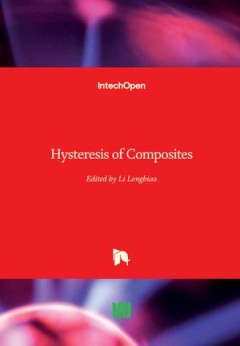
Privately Empowered: Expressing Feminism in Islam in Northern Nigerian Fiction
Privately Empowered responds to the lack of adequate attention paid to Islam in Africa in comparison to the Middle East and the Arab world. Shirin Edwin points to the embrace between Islam and politics that has limited Islamic feminist discourse to regions where it evolves in tandem with the nation-state and is commonly understood in terms of activism, social affiliations, or struggles for lega…
- Edition
- -
- ISBN/ISSN
- 9780810133693
- Collation
- -
- Series Title
- -
- Call Number
- -

The Priority of Locomotion in Aristotle’s Physics
The book inquires into Aristotle’s claim that of the four kinds of change that exist, locomotion is the most fundamental and important kind. In a first step, the author shows that the arguments for the thesis of locomotion’s priority play a crucial role in the argument of Physics VIII and for the understanding of Aristotle’s philosophy of nature in general. The main focus o…
- Edition
- -
- ISBN/ISSN
- 9783525253069
- Collation
- -
- Series Title
- -
- Call Number
- -
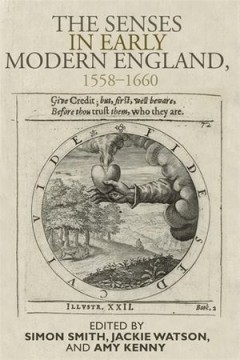
Precarious Crossings: Immigration, Neoliberalism, and the Atlantic
Examines the underlying precarity in twenty-first-century immigrant fiction and reveals the contradictions inherent in neoliberalism as an ideology.
- Edition
- -
- ISBN/ISSN
- 9780814214107
- Collation
- -
- Series Title
- -
- Call Number
- -
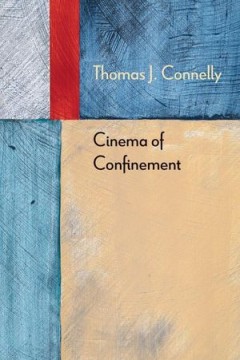
Cinema of Confinement
"In this book, Thomas J. Connelly draws on a number of key psychoanalytic concepts from the works of Jacques Lacan, Slavoj Žižek, Joan Copjec, Michel Chion, and Todd McGowan to identify and describe a genre of cinema characterized by spatial confinement. Examining classic films such as Alfred Hitchcock's Rope and Stanley Kubrick's The Shining, as well as current films such as Room, Green Room…
- Edition
- -
- ISBN/ISSN
- 9780810139237
- Collation
- -
- Series Title
- -
- Call Number
- 791.43 CON c
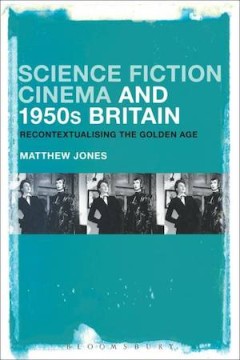
Science Fiction Cinema and 1950s Britain: Recontextualising the Golden Age
For the last fifty years, discussion of 1950s science fiction cinema has been dominated by the view that the genre reflected US paranoia about Soviet brainwashing and the nuclear bomb. However, classic films, such as Invasion of the Body Snatchers (1956) and It Came from Outer Space (1953), were regularly exported to countries across the world. The histories of their encounters with foreign aud…
- Edition
- -
- ISBN/ISSN
- 9781501322532
- Collation
- -
- Series Title
- -
- Call Number
- 791.435 JON s

Martin Scorsese's Divine Comedy: Movies and Religion
Catherine O'Brien draws on the structure of Dante's Divine Comedy to explore Scorsese's feature films from Who's that knocking at my door (1967-69) to Silence (2016). In Dante's poem in 100 cantos, the Pilgrim is guided by the poet Virgil down through the circles of Hell in Inferno; he then climbs the steep Mountain of the Seven Deadly Sins in Purgatory; and he finally encounters God in Paradis…
- Edition
- -
- ISBN/ISSN
- 9781350003279
- Collation
- -
- Series Title
- -
- Call Number
- 791.43 OBR m
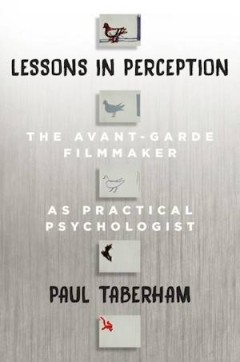
Lessons in Perception: The Avant-Garde Filmmaker as Practical Psychologist
Lessons in Perception seeks to clarify notoriously elusive themes of the avant-garde with the use of existing research from the field of psychology. There is a long-standing history of reference to psychological concepts in relation to avant-garde film, such as its unique relationship to memory, visual perception, narrative comprehension, and synesthesia. Yet direct analysis of these topics in …
- Edition
- -
- ISBN/ISSN
- 9781785336416
- Collation
- -
- Series Title
- -
- Call Number
- 791.43 TAB l
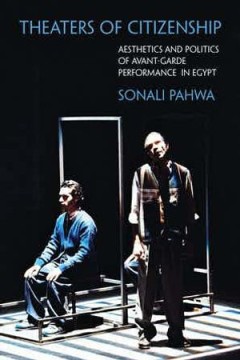
Theaters of Citizenship: Aesthetics and Politics of Avant-Gardist Performance…
Theaters of Citizenship investigates the Egyptian movement for free theater, arguing that it evolved from an avant-gardist movement to an undercommons of revolutionary cultural practice. Using historiography, ethnography, and performance analysis, the book tells a story of this avant-garde from 2004-2014, analyzing its staging of rights claims, generational identity politics, and post-revolutio…
- Edition
- -
- ISBN/ISSN
- 9780810141766
- Collation
- -
- Series Title
- -
- Call Number
- 792 PAH t
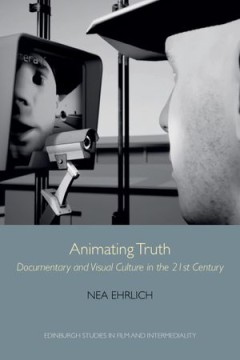
Animating Truth: Documentary and Visual Culture in the 21st Century
Animating Truth examines the rise of animated documentary in the 21st century, and addresses how non-photorealistic animation is increasingly used to depict and shape reality.
- Edition
- -
- ISBN/ISSN
- 9781474463362
- Collation
- -
- Series Title
- -
- Call Number
- 791.43 EHR a
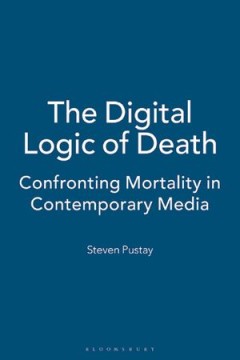
The Digital Logic of Death: Confronting Mortality in Contemporary Media
In The Digital Logic of Death, Steven Pustay skillfully makes visible the immensely important but often overlooked role that moving images play in shaping our understanding of mortality. This relationship, he argues, is made all the more urgent by the technologies of the digital age, which have profoundly altered our ability to represent and contemplate death through moving images, resulting in…
- Edition
- -
- ISBN/ISSN
- 9781501364082
- Collation
- -
- Series Title
- -
- Call Number
- 790 PUS d
 Computer Science, Information & General Works
Computer Science, Information & General Works  Philosophy & Psychology
Philosophy & Psychology  Religion
Religion  Social Sciences
Social Sciences  Language
Language  Pure Science
Pure Science  Applied Sciences
Applied Sciences  Art & Recreation
Art & Recreation  Literature
Literature  History & Geography
History & Geography